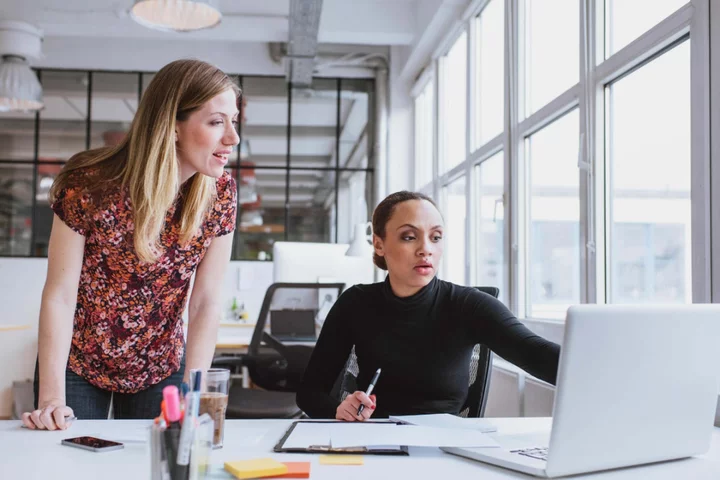
Menopause and menstruation guidance launched for workplaces to support employees
A new workplace standard has been launched for businesses to support employees experiencing menopause or menstruation. The British Standards Institute (BSI) has published the new guidance to help organisations retain experienced and talented staff after a consultation with experts and the public. The Menstruation, menstrual health and menopause in the workplace standard (BS 30416) sets out practical recommendations for workplace adjustments as well as strategies that can help employers meet the needs of those experiencing menopause or menstruation. It comes after research from the Fawcett Society suggested about 10% of those experiencing menopause have left the workplace due to symptoms such as hot flushes, dizziness, insomnia, and muscle and joint stiffness. Organisations which prioritise their people by building an inclusive workplace will be best placed to continue to thrive in the future Anne Hayes, British Standards Institute This figure rises to 25% for those with more severe symptoms. Wm Morrison and BT as well as representatives from Unison, the Federation of Small Businesses, the LGBT Foundation, the Institution of Occupational Safety and Health, the Daisy Network and Endometriosis UK all gave input to the development of BS 30416. The recommendations include workplaces considering whether there is a general awareness of menstruation and menopause in its culture and whether employees have opportunities for open conversations or to request support. Suitable training for line managers and HR managers, reviewing the workplace environment to include facilities such as quiet recovery spaces or discrete changing rooms, and options for flexible working are also among the guidance. Anne Hayes, director of sectors at the BSI, said: “Organisations which prioritise their people by building an inclusive workplace will be best placed to continue to thrive in the future. “There is no one-size-fits-all experience of menopause, but the data suggests thousands of women are leaving the workforce at this stage, contributing to significant productivity losses, robbing organisations of talented people, and removing mentors who can draw on their experience to support newer members of staff. It doesn’t have to be that way.” If we get this right for 50% of the population that we need in the workplace from an economic and experience perspective, it has the potential to make the final 10, 15 or 20 years of a woman’s career the most productive, exciting and meaningful Helen Tomlinson, menopause employment champion Helen Tomlinson, menopause employment champion for the UK Government, said: “I am truly delighted that the BSI have produced the Menstruation, menstrual health and menopause in the workplace standard, recognising the challenges, symptoms and experiences of both menopause and menstrual health and how these can affect women in the workplace. “It’s a free resource for any organisation, large or small across all sectors, to be able to utilise. This will go a long way to ensure that everyone can receive the support they need at this critical time. “I firmly believe this transition isn’t a time to step back, step down or step out. If we get this right for 50% of the population that we need in the workplace from an economic and experience perspective, it has the potential to make the final 10, 15 or 20 years of a woman’s career the most productive, exciting and meaningful.” Read More Charity boss speaks out over ‘traumatic’ encounter with royal aide Ukraine war’s heaviest fight rages in east - follow live Kate Silverton on swapping her BBC news career to work as a child therapist Watching Love Island this year? How to avoid comparing your body to what’s on screen Dating ‘green flags’ to look out for on Love Island – and in your own life
2023-05-31 16:26

Kate Silverton on swapping her BBC news career to work as a child therapist
Most people know Kate Silverton from her time as a BBC newsreader, or possibly from when she took part in Strictly Come Dancing. But that’s the old Kate Silverton. The new Kate Silverton is a qualified child therapist – so what made the mum-of-two swap such a successful media career to help children instead? “The love of it! My academic background is in child psychology, and becoming a mum really inspired me too,” she says. She’s worked with a number of children’s mental health charities over the years, and explains: “My journey has really been decades long, both in understanding more about children’s mental health, and as a parent really benefiting from all the interviews and access to advice that I was given by incredible people.” Currently working in a primary school supporting young children with complex needs, Silverton, 52, admits that when she competed on Strictly in 2018 (she was paired with professional dancer Aljaž Škorjanec and finished eighth), it was with a view of leaving journalism to train as a child therapist. “And that’s what I did,” she declares proudly. “My interest has been long-held, and I’ve now qualified, and it’s absolutely my life’s passion. So I’ll be using journalism and all my presenting experience to raise awareness around children’s mental health and really to support parents. “I’ve had an incredible life in journalism [presenting BBC News at One and BBC Breakfast, among other high-profile TV and radio roles], and many, many years that have been really fulfilling. I think you’re always drawing upon the experiences you’ve picked up before, but as a mum especially, for me, this is now where home is, and will become my life’s work.” Silverton’s two children, Clemency and Wilbur, are now aged 11 and eight, and were conceived naturally after Silverton and her husband, Mike Heron, tried IVF but it wasn’t successful. She continued to work as a journalist after Clemency was born, but took two years off when she had Wilbur in 2014. “I was freelance, but it got to the point where I thought I can’t physically do this – you know, I’m an older parent as well. “I had to make a judgement call – and I can only ever speak for myself, there’s no judgement for others. But I took two years out because I just couldn’t see any other way of doing everything, and doing it the way I hoped to. “It’s really, really hard for parents now, and I say to a lot of the parents I speak to in my clinical work, ‘Please, please, please do not berate yourself, we are living in a very challenging time’. We’re pulled in so many ways, we’re still doing a lot of work at home, and we’re expected to be present either at work, and/or at home. “So there’s no easy answer. But I think we owe it to our children to start asking, is this really working for us as parents? And is it working for our children?” Was she worried that taking two years out might affect her career? “I was the main breadwinner,” she says, “And my husband and I made a decision between us that things would change. And I think a lot of families do that – they have to find themselves having really difficult conversations. And certainly, there are no easy answers. “But what I found is I’ve changed my career, and I see it as a second act, if you like, and maybe that’s thanks to having children. So sometimes, what can seem a really difficult decision and one that we might worry about, you kind of think, actually, maybe it wasn’t the right place for me, after all.” She returned to journalism after her two years out, but was working at weekends doing the Saturday night news while her husband looked after the kids. “Ultimately, I thought I don’t want to be doing this, I don’t want to be in the newsroom on a Saturday night when my children are at home with my husband,” she says. “We all make these decisions based on our own personal circumstances, and for me at the time, I was ready to follow my heart and retrain, as that had been in my mind for a very long time. So I guess the decision made itself, really.” Silverton is now determined to help make family life work not only for herself, but for other parents, and as well as her work in a primary school and writing the book There’s No Such Thing As ‘Naughty’ (Piatkus, 2021) – a parenting guide which explores how children’s brains develop and how it influences their behaviour – she’s teamed up with the children’s furniture brand Stokke to explore parents’ worries about child development in the under-fives. New Stokke research has found 29% of parents of children aged zero to five years are concerned about their child growing up shy, and nearly a third (31%) of parents identify confidence as the most important characteristic for their child to gain during their early years. “First and foremost for children, especially under five, we want to ensure the foundations being built in their brain are strong,” explains Silverton. “And parents are the best people to build those foundations for future mental health.” In practical terms, what do parents need to do to help their children learn to be confident and mentally strong? “Be with them,” advises Silverton. “Our presence is really crucial, because when our children inevitably navigate more challenging experiences, having us nearby to model the behaviour that’s appropriate can give them the confidence to know they can eventually go off alone. “I’d love parents to feel more confident to follow their instincts when it comes to being with their children. Our children don’t necessarily need to be doing in these early years, they simply need to be. And by that I mean being with and alongside us as their guide. Because parents really are more powerful than they know.” She stresses it isn’t about buying young children expensive educational toys or doing anything complicated. “It’s the little things that mean so much – putting the phone down and actually engaging with our children face-to-face, getting down on the floor and playing with them, spending time with them, letting them know we value them and we want to spend time with them, we love and we delight in their presence. These are the things that build confidence, because they’re building a sense of self-worth.” Although she’s stepped back from her high-profile broadcasting career, Silverton’s still very busy with child therapy and writing her second book, which she hopes will be published in the autumn. But, as she says herself, “We’re told we can have it all – well, actually, you can have it all, but not at the same time.” “Being a busy parent who’s also trying to work, I suppose the victim is my own wellbeing,” she reflects. “It’s not like I’m terrible, but it does get squeezed more than I’d like.” However, she does find some time to look after herself. “Whether it’s bouncing on a little trampoline, or going to walk your dog or doing yoga, anything that’s patterned, repetitive, rhythmic, is actually very soothing for our brain stem, and absolutely vital for our health,” she explains. “I am really mindful of my health, and I’d love to carve out more time, and certainly when I’ve got book two finished, I will be doing a lot more of it. But I pretty much keep in balance, and I’m fairly good at recognising when my body’s out of kilter and then doing something about it. So I haven’t learned this much without applying a few good principles myself!” Kate Silverton is supporting Stokke to explore parents’ worries about child development and the early years. Read More Charity boss speaks out over ‘traumatic’ encounter with royal aide Ukraine war’s heaviest fight rages in east - follow live Watching Love Island this year? How to avoid comparing your body to what’s on screen Dating ‘green flags’ to look out for on Love Island – and in your own life Crackdown on vape adverts targeting kids – what parents can do
2023-05-31 14:55

'America's Got Talent' winner Terry Fator and participant Lindsey Stirling have seen amazing success since their show appearance
Find out what 'America's Got Talent' winner Terry Fator and participant Lindsey Stirling have been up to
2023-05-31 07:19
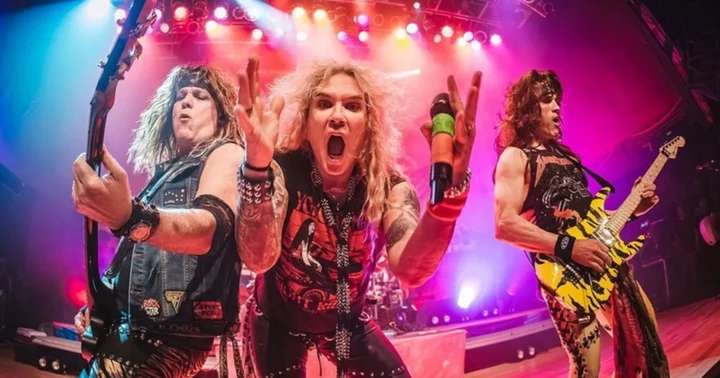
'America's Got Talent' Season 18: Who is Steel Panther? Metal band was almost nominated for a Grammy
Steel Panther is ready to turn 'America's Got Talent' into a 'whole lot more metal'
2023-05-31 06:22

Who is Philip Bowen? 'America's Got Talent' Season 18 violinist is a pro in Hard Rock and Hip Hop
'America's Got Talent' Season 18 violinist Philip Bowen is ready to release his debut album
2023-05-31 05:49

Delta Air Lines hit with lawsuit over claims of carbon neutrality
A consumer class action lawsuit filed Tuesday claims Delta Air Lines inaccurately billed itself as the world’s “first carbon-neutral airline” and should pay damages
2023-05-31 03:19
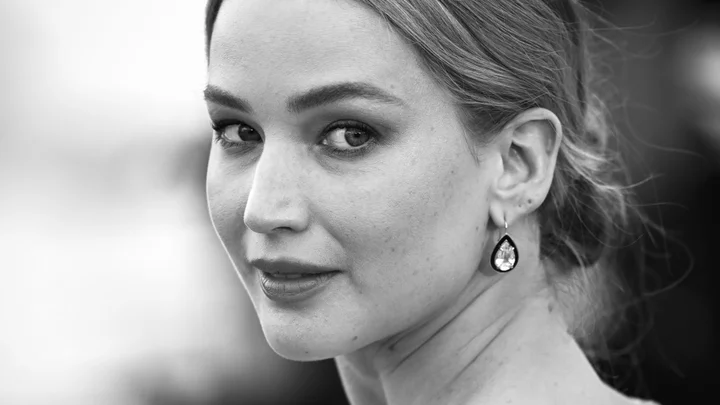
Jennifer Lawrence showcases a red hot look at 2023 Cannes Film Festival
Jennifer Lawrence showcases a red hot look at 2023 Cannes Film Festival
2023-05-31 01:47

Watching Love Island this year? How to avoid comparing your body to what’s on screen
ITV2 has and revealed the first 10 contestants who will be heading to Majorca to take part in the summer season of Love Island. Commercial estate agent Catherine Agbaje, semi-professional footballer Tyrique Hyde and model Ella Thomas are among the islanders who will enter the Spanish villa when the new series starts on Monday, June 5. We’re set for another summer of romantic recouplings, dramatic dumpings and bombshell arrivals, but it’s important to remember that this brand of ‘reality’ TV doesn’t always reflect the real world. Especially when it comes to body diversity. Love Island contestants lounge around in swimwear all day, meaning there’s more of a focus on their physiques than on other shows. While for some viewers, the clothing (or lack thereof) doesn’t make a difference, it’s understandable if you do find that you compare yourself unfavourably to the scantily-clad islanders. “It depends really on the way that we do that comparison, whether it’s positive or negative,” says Lowri Dowthwaite, lecturer in psychological interventions at the University of Central Lancashire. “We do know that there’s a big link between that kind of negative comparison and people feeling bad about themselves or feeling that they’re not good enough.” There may also be a gender divide when it comes to comparison and body image. Dowthwaite says: “Women have a tendency to be to compare themselves a lot more. Rumination around that as well tends to be higher in women… and that can be quite damaging.” Indeed, a 2019 YouGov survey found that 75% of Love Island viewers agreed with the statement ‘it is important for me to look physically attractive’, the majority of which (43%) were aged 18 to 29. “When people are younger, I think naturally we are much more self-conscious and much more preoccupied with the way that we look,” says Dowthwaite. “As people get older, past 30 or 40, the preoccupation gets a bit less. I definitely think it is a bit of a thing that affects the younger people.” In turn, this ‘compare and dispair’ mindset can affect our behaviour or self-esteem. “People get drawn into that negative self-evaluation, where they maybe focus in on one particular part of their body that they’re not happy with. In extreme cases, it might have an impact on dieting,” Dowthwaite continues. Although she points out: “We can’t definitely say that the media and what we see causes eating disorders, because it’s too complex to say that. I think it’s about how we consume [TV] helpfully.” So how can viewers enjoy Love Island in a balanced, body positive way? Remember it’s not always realistic First of all, remind yourself of all the technical trickery that goes into making glossy TV shows. “It’s filmed in a way with lighting whereby it’s going to accentuate people’s features, there’s a lot of editing that goes into it as well,” says Dowthwaite. Same goes for the glamorous promo materials: “It’s photographed in such a way that, you know, it’s not real life – real people have flaws, we all have flaws.” Plus, these contestants have had weeks or months or get ready for their ‘big TV reveal’. “They might have gone through rigorous regimes to get themselves looking as good as they can possibly look,” she says. It’s not healthy to try to have the same figure as someone who is, for example, naturally very thin: “If you’re not genetically meant to be that slim, then you’re not going to be.” Monitor what you’re consuming With reality shows that are designed to keep you hooked, it’s easy to forget how they might be affecting your mood. “You need to become conscious of it,” says Dowthwaite, who recommends keeping a diary of what you’re viewing in terms of TV or social media and monitoring how it makes you feel. “If you find that you’ve consumed lots of things like Love Island and things that are appearance-based and you’re feeling quite low and moody… there’s probably a correlation between that.” Seek out body positivity To counteract the effects of unattainable reality TV ideals, it can help to follow body positive Instagram or TikTok accounts. “We need to see more of that, I think, in the media, to help people to not be so self-critical,” says Dowthwaite. “And to kind of appreciate that we’re all different shapes and sizes – and that’s good.” Focus on other activities Ultimately, it’s not healthy to derive your self-esteem from your looks, which is why you need to remind yourself that there’s more to life than having a Love Island-level body. “What are you good at? What talents do you have? What interests do you have? What are your strengths? Those kinds of things are a lot more important,” says Dowthwaite. If you’re feeling down about yourself, switch off the telly and take part in some mood-boosting activities. “Exercising and using your body to do things that you enjoy, like going for walks in nature, or doing yoga or horseback riding or whatever it is you’d like to do, that’s a way to have a healthier relationship with your body,” Dowthwaite recommends. “Moving your body in the great outdoors is just an excellent way to kind of feel that all that stuff doesn’t really matter that much.” Love Island returns to ITV2 and ITVX on Monday June 5. Voting for the first coupling up opens at 8am on Thursday on the Love Island app. Read More Charity boss speaks out over ‘traumatic’ encounter with royal aide Ukraine war’s heaviest fight rages in east - follow live Dating ‘green flags’ to look out for on Love Island – and in your own life Crackdown on vape adverts targeting kids – what parents can do How to make a small garden feel bigger
2023-05-30 21:55

Have You Been Misled by ‘Misles’? The Linguistics Behind These Commonly Mispronounced Words
Learning how to pronounce ‘biopic’ is one thing. Understanding why it’s such a commonly mispronounced word is another.
2023-05-30 20:28
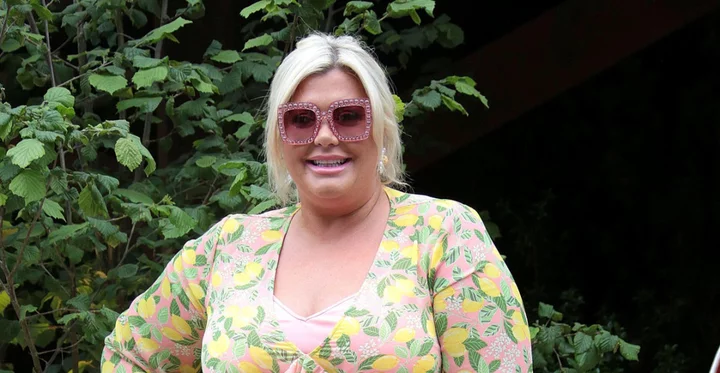
Gemma Collins says she wouldn’t ‘need to’ consider surrogacy: ‘I can have the best doctors going’
Gemma Collins has opened up about her future plans for motherhood, amid her battle with polycystic ovary syndrome (PCOS) and an underactive thyroid. The former The Only Way is Essex star dismissed the suggestion that she could use a surrogate to have children, declaring that she has “the best doctors going” to help her get pregnant when she is ready. Speaking to OK! Magazine at the Chelsea Flower Show recently, Collins, 42, admitted that she did not know if she sees herself ever having children in the future, despite having previously said she was “desperate” to have a baby with fiancé Rami Hawash. “Obviously I’ve got PCOS and all of that,” she said. “I could have a child at 50. If I’d had kids sooner, I would probably have been crazy, whereas now, I’m Miss Organic, I can just be at Zen with the child.” However, Collins said that going to mother and toddler groups has “never interested” her, unless they are in “Knightsbridge, darling”. “I’m happy to host my own one indoors or around the vegetable patch,” she continued. “A bit of organic pressed champagne! “It’s a lot having a kid. It’s a big commitment but it’s also very rewarding. But my life will take me where it’d going to take me. It’s taken me this far and as sure as hell, it’s not over yet.” Asked if she would consider having a child via surrogate, the TV personality said: “I don’t think I’ll need too. I’m The GC, honey. I can have the best doctors going. I’ll just ring one up and say, ‘Right, come on, get me pregnant!” Collins also gave an update on her mental health and said she was off all anti-depression medication as it “really clouded” her judgement. In her 2021 documentary Gemma Collins: Self-Harm & Me, Collins revealed that she was “always put off having children” due to the fear that her depression and self-harming would make her an “unfit mother”. However, instead of taking medication to treat the condition, she now uses a device called the Flow Neuroscience Headset. The device, created by a Swedish company, uses electric pulses to increase brain activity and is currently being trialled by the NHS. Collins said: “I do it in the morning when I’m making a cup of tea. It’s a head device programmed to an app on your phone and it stimulates the frontal area of the brain linked to depression.” The I’m A Celebrity star claimed the headset has so far helped to clear her head and bring her emotions back, which she said were “numbed” by anti-depressants. “I’ve got all my feelings again and I felt that my judgement was quite clouded. I didn’t feel like I could see dodgy people around me. People were taking me for granted but my brain is so sharp now and I’ve got no side effects,” she said. “I was desperate to get off medication – but everyone is different and they need to consult their GP. But I was like, ‘I don’t want them in my life.’ That’s it.” Read More Dani Dyer chooses matching initial names for newborn twin daughters: ‘My heart feels so full’ Succession’s Sarah Snook welcomes her first child with husband Dave Lawson Queer parents need everyone’s support, not people calling us ‘breeders’ Gemma Collins urges women to talk openly about incontinence Sarah Beeny shares health update after all-clear from breast cancer Crackdown on vape adverts targeting kids – what parents can do
2023-05-30 19:27
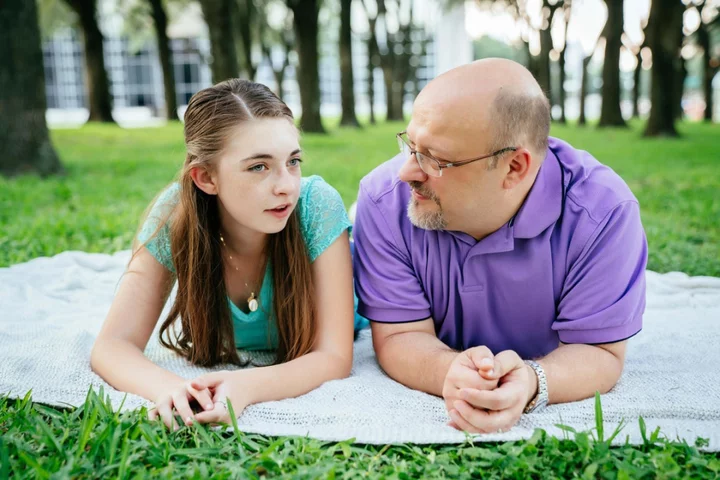
Crackdown on vape adverts targeting kids – what parents can do
The Government is cracking down on vape marketing targeted towards children and young people, Rishi Sunak has said. The news comes days after the Prime Minister spoke about his concerns his own daughters would potentially be targeted by vape marketing on ITV’s Good Morning Britain. Ministers have now pledged to close a loophole allowing retailers to give free samples of vapes to children in England, amid concerns over the proportion of children trying e-cigarettes. There will also be a review into banning retailers selling “nicotine-free” vapes to under-18s, and the Government will look at the rules on issuing fines to shops that illegally sell vapes to children. The Prime Minister said he was “deeply concerned” about an increase in children vaping and was “shocked by reports of illicit vapes containing lead getting into the hands of schoolchildren”. Sunak said: “That is why I am taking further action today to clamp down on rogue firms who unlawfully target our children with these products. “The marketing and the illegal sales of vapes to children is completely unacceptable and I will do everything in my power to end this practice for good.” Why is vaping bad for children’s health? “We could argue vaping doesn’t have the amount of toxins cigarettes have – up to 70 of these cause cancer – but vaping is not completely harmless,” says GP Dr Anita Raja. “It’s very important to protect your organs, especially your lungs and brain. Vaping can be particularly detrimental to people under the age of 18 who are still developing.” Most vapes contain nicotine, which is highly addictive and can cause can cause an increase in blood pressure, heart rate, flow of blood to the heart and a narrowing of the arteries. “It can become very difficult to get off the nicotine – so why would you want to be addicted at such a young age?” Raja asks. The other problem with vaping is that experts don’t yet fully understand the long-term risks because it’s such a new phenomenon, she adds. “Let’s not forget when cigarettes were introduced many decades ago we didn’t know that they could cause cancers and long-term irreversible lung damage.” How to talk to your children “First up, learn about the facts of vaping yourself. Get information from a reliable source,” says parenting expert Liat Hughes Joshi, author of Help Your Child Cope With Change. “So that when you do end up discussing this with your teenager you’re coming at it from a place of knowledge and you’ll feel more confident.” The conversation could be tricky, so approach it calmly. She advises: “Choose your time in place carefully. Don’t pounce on your teenager when they’re in the middle of something or when they are stressed about an exam. Choose a time where you’re both feeling relatively relaxed.” “Instead of telling them not to, what you are much better doing is giving them that information about the real risks and the downsides of vaping, so that they can hopefully make a decision of their own which is the right decision,” Hughes Joshi says. “It’s definitely worth talking to them about ideas around [peer pressure] and giving them the confidence to push back and say, ‘I don’t have to copy all my peers if they are vaping’.” Similarly, if you know or suspect that your child has already vaped, try not to fly off the handle. “Don’t automatically scold them,” says private GP Dr Suhail Hussain. “Find out why they tried it, and then listen. Be understanding and informative, not angry and disappointed that they would do this in the first place.” What about if you vape yourself but don’t want your child to follow suit? “We need to lead by example,” says Raja, who believes vaping should be used only as a way for adults to quit smoking. “It is almost impossible to convince your children to not vape if they see you doing it. If you don’t want your child to vape, then you shouldn’t vape, or certainly not vape in front of them.” Read More Charity boss speaks out over ‘traumatic’ encounter with royal aide Ukraine war’s heaviest fight rages in east - follow live How to make a small garden feel bigger How not to get ripped off when upgrading your kitchen The best scented plants to enhance your balmy summer evenings
2023-05-30 17:21

Queer parents need everyone’s support, not people calling us ‘breeders’
A recent book called The Queer Parent, written by Lotte Jeffs and Stu Oakley, calmly opens with the line: “Ninety per cent of queer parenting is simply… parenting”. It’s a fair point. Whether you’re male, female or non-binary, single or partnered, and regardless of your sexuality, all of us who parent aim to meet the exact same needs for our children, day in, day out. The title caught my attention because I think there’s something very timely and profound about the act of being a gay or queer parent today. It’s doing the work that many (dare I say most) people want to see in society – namely raising a new generation of non-toxic humans, making the world a happier place to be different – but in the slow grind of parenthood, not just in the quick flash of activism. I really believe gay and queer parents are changing the world, in a very deep yet unsexy way. Mum and mummy being at the school gate, dad and daddy collecting a child from nursery, or as we’ll get into, dad giving birth to a baby son or daughter. They’re changing the world by being active, visible and engaged parents. But there’s a slightly awkward, under-discussed aspect to this that has truly got under my skin in the eight years since I’ve been a parent. I’m pansexual, so I fancy men as well as women, non-binary people and pans. But oddly I’ve always been frightened to talk about parenthood with most of my avowedly gay male friends – because I’m never quite sure if anyone’s going to derogatorily refer to me as a “breeder” or not. It’s hard to know how well-known the term “breeder” is. I personally used to hear it a lot more back in the mid-Noughties when I was in my early twenties. It’s essentially a slightly bitchy term that’s interchangeably derogatory to people with kids and/or straight people as a whole. As a word, it’s a pretty effective zinger. Straight people have tended to use sexual imagery to define and denigrate gay people. It seems fair that gay people would do the same to heterosexuals. “Breeder” reduces the pleasures of sex to a slightly dehumanised process. In fact, unconnected to sexuality, Gulliver’s Travels author Jonathan Swift used the term to reduce people to a brutal, almost farmyard functionality in a satirical essay from 1729. It’s important to establish that I’m not here to spank gay men on the bum. Neither am I here to accuse them of “heterophobia” either – which I’ve put in quote marks because I’m dubious that it can even exist as a concept. If I was an exclusively gay guy, I might robustly define my sexuality against heteronormativity in ways which could be punchy and sharp. I might also – by virtue of a lifetime of homophobia and trauma that may have started in the home as a child – have latently negative views about the whole concept of family. But I am who I am now, and despite understanding all this, I’m still getting weary of it as a trope, and also as a reason not to talk about the many genuine ecstasies of parenthood. I like being a dad and I like dating guys. These things shouldn’t be so controversial – yet weirdly, I find it’s gay men who have more slack-jawed incomprehension of these two facts than any other group in society. My own personal beef is very trifling in the scheme of things, however. The much bigger picture is that – newsflash – gay, queer and trans people have kids. Loads of them. While data is limited, there was a 40 per cent rise in same-sex parents from 2015 to 2019. Anecdotally, it seems to be a much greater phenomenon than is reported. The same goes for the rarely examined hardships LGBT+ people typically go through to even have kids: namely the incredible anguish of IVF and the epic emotional journey of surrogacy. You’d expect increased visibility of gay and queer parents would have phased out the use of the word “breeder” as a pejorative, but weirdly it lives on – especially on TikTok where, perhaps like an unkillable echo of my own twenties, it’s mostly young people using the word as a way of defining their queerness and riling up straights. What makes my heart sink, beyond knowing that a younger generation is using the same dumb-ass words people said 20 years ago, is that this is a really, really bad time to start being unsupportive of gay parents. While queer visibility may feel greater than ever, the world is going backwards in many respects. Even just in the realm of children’s culture, things as harmless as a drag artist reading stories can draw an angry mob of culture warriors – as happened at Tate Britain in London in February. Look at Florida – once the home of fictional queer icons The Golden Girls, now home to Republican governor and presidential hopeful Ron DeSantis – and you’ll see books with titles as benign as This Book Is Gay banned as a result of his vociferously “anti-woke” legislation. We all know that creating this type of hostile environment will surely result in more bullying, more hatred, more lives blighted. While queer visibility may feel greater than ever, the world is going backwards in many respects It’s pathetic, cruel yet grimly successful at the same time. With every small news story or stunt, a palpable hostility festers. Thus anything that drives a wedge between gay/queer people and parenthood is a bad look right now – especially with elections looming in the US and Britain that I fear will see the issue of gender identity playing a huge, calculatedly divisive role. What better way to rebuff this negativity than by strongly standing up for gay and queer parents. Specifically, we could start standing up for men having babies. Trans men like the British journalist Freddy McConnell who a few years back gave birth to a child who seems to be doing great (and likes a good splash in the sea), or Iowa-born Tanius Posey, who thankfully was able to breastfeed his child despite simultaneously getting online abuse for it. Logan Brown, also from the UK, is a trans man who has been documenting his pregnancy over the past few months with genuine clarity and candour. He gave birth to his daughter Nova just over a week ago. Celebrated gay NYC artist Keith Haring frequently placed a baby into his work, a shining symbol of hope and playful optimism for the future. Maybe in the same spirit as Haring, we could all do with a new beginning in our attitudes to gay and queer parenting, inspired by a rather miraculous baby such as Nova. Read More How OCD can destroy relationships: ‘I had the obsessive fear that I might cheat’ Women with body hair remain a cultural taboo, and I can’t see it changing Flip-flops, nudity and ‘up the vajayjay!’: How the red carpet became a platform for protest
2023-05-30 14:27
